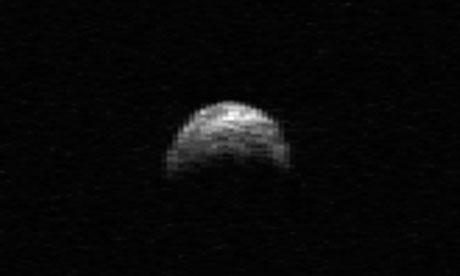 |
Senior Member
|
|
Join Date: Jun 2009
Posts: 59,933
|
|
|
Senior Member
Join Date: Jun 2009
Posts: 59,933
|
 Asteroid YU55 passes earth tonight
Asteroid YU55 passes earth tonight

Quote:
(Reuters) - A huge asteroid will pass closer to Earth than the moon on Tuesday, giving scientists a rare chance for study without having to go through the time and expense of launching a probe, officials said.
Earth's close encounter with Asteroid 2005 YU 55 will occur at 6:28 p.m. EST (2328 GMT) on Tuesday, as the space rock sails about 201,000 miles (323,469 km) from the planet.
"It is the first time since 1976 that an object of this size has passed this closely to the Earth. It gives us a great -- and rare -- chance to study a near-Earth object like this," astronomer Scott Fisher, a program director with the National Science Foundation, said on Thursday during a Web chat with reporters.
The orbit and position of the asteroid, which is about 1,312 feet (400 meters) in diameter, is well known, added senior research scientist Don Yeomans, with NASA's Jet Propulsion Laboratory in Pasadena, California.
"There is no chance that this object will collide with the Earth or moon," Yeomans said.
Thousands of amateur and professional astronomers are expected to track YU 55's approach, which will be visible from the planet's northern hemisphere. It will be too dim to be seen with the naked eye, however, and it will be moving too fast for viewing by the Hubble Space Telescope.
"The best time to observe it would be in the early evening on November 8 from the East Coast of the United States," Yeomans said. "It is going to be very faint, even at its closest approach. You will need a decent-sized telescope to be able to actually see the object as it flies by."
Scientists suspect YU 55 has been visiting Earth for thousands of years, but because gravitational tugs from the planets occasionally tweak its path, they cannot tell for sure how long the asteroid has been in its present orbit.
"These sorts of events have been happening for most of the lifetime of the Earth, about 4.5 billion years," Fisher said.
|
|